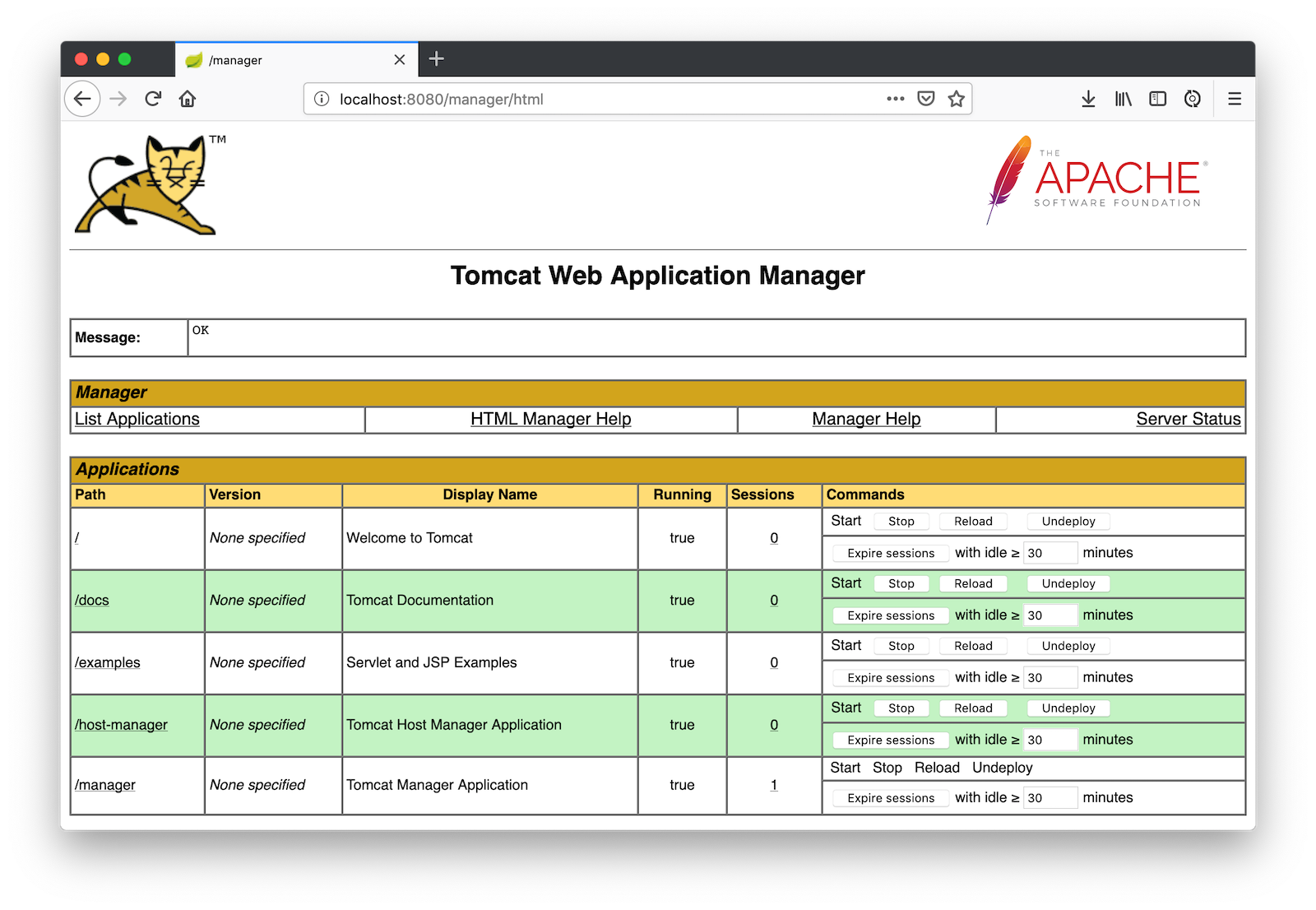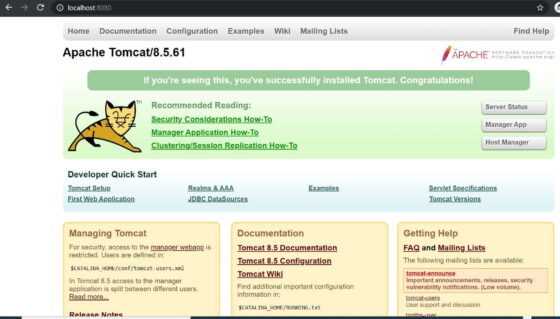

- TOMCAT 8 DEPLOY WAR INSTALL
- TOMCAT 8 DEPLOY WAR ARCHIVE
Keeping this in consideration, does Jenkins run on Tomcat? war file will be extracted automatically to a folder that has the same name (without extension) (E.g.: prj) war file (E.g.: prj.war) to %CATALINA_HOME%webapps ( E.g.: C: omcatwebapps )
TOMCAT 8 DEPLOY WAR INSTALL
In order to install Jenkins we need to deploy the Jenkins war file by using Apache Tomcat.Īdditionally, where does Tomcat deploy WAR files? Manual steps - Windows To install Java version 8 execute the below command:
23 Replies to “ Deploying your war file from Jenkins to Tomcat”Īccordingly, how does Tomcat integrate with Jenkins?. Run the Job project and verify the end results. It gets unpacked to the directory my-app#1.2.3 but the context will be just my-app (i.e. If you just want to include a version info in your war file name, you can name it like: my-app#1.2.3.war. The relevant solution is highly related to the way Tomcat is configured and managed in the everyday. For these, you need an access to the server filesystem. TOMCAT 8 DEPLOY WAR ARCHIVE
This works whether or not unpacking war files, hot deployment or not, is deployment agnostic (manager or file system) and manages multiples versions of a same archive.īut if there is the need to have a path distinct from the archive name, it seems the only solution is the descriptor in the /conf/// directory or the server.xml file. A double sharp introduces the version number (e.g. test#path.war) in the war file names implies a segment in the context path (e.g.

In my point of view, for these reasons, the general and easy way to implement a subtle path in a production environment is taking advantage of the naming of war files (what could include versions management and be a solution to your problem).
Inside a Host element in the main conf/server.xml, which is a discouraged solution in a production environment as it requires restarting the serverĪnother solution takes advantage of the unpackWARs attribute. In individual files (with a ".xml" extension) in the $CATALINA_BASE/conf/// directory. The context path may not be defined in a META-INF/context.xmlĪccording to the ways of defining a Tomcat context, this lets only two solutions: To follow the documentation, this has a very important consequence: When autoDeploy or deployOnStartup operations are performed by a Host, the name and context path of the web application are derived from the name(s) of the file(s) that define(s) the web application.ĭeployOnStartup is the default behavior of Tomcat hosts. There is an important point to emphasize about the path attribute of the context fragment definition. You could also use Ant (or an equivalent tool) to automate your deployments (and perform any of the above). Or simply include the version in a config / XML file. Include the version number in a flat file. Clean the web apps folder each deployment and drop your new foo-1.1.0 war in. Note that conext roots must be unique and there are some additional considerations if you're using the autoDeploy or deployOnStartup operations (Source ). When the application is deployed, the context.xml should be copied to /conf/Catalina/localhost but renamed to foo.xml Instead, I'd suggest you use context.xml in the META-INF folder of your web application / war file: This is often set in the Tomcat server.xml - but that practice is fairly widely discouraged. However, this is totally unnecessary as you can specify the URL pattern of the application without messing with the folder / war file name at all by overriding the context root element for your application: So if you unzip the contents of foo.war to a folder called bar/ manually, instead of just dropping the war into the web apps folder, it'll still load the web application. 
You can extract it to a folder name of your choice. Tomcat will always extract the contents of a war file, to a folder of the same name (when it's configured to deploy wars - as default etc.).







 0 kommentar(er)
0 kommentar(er)
